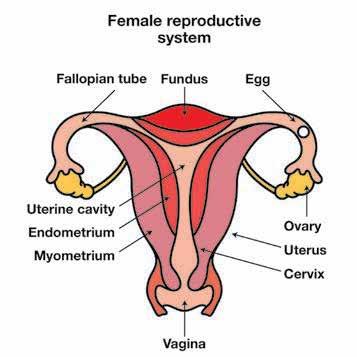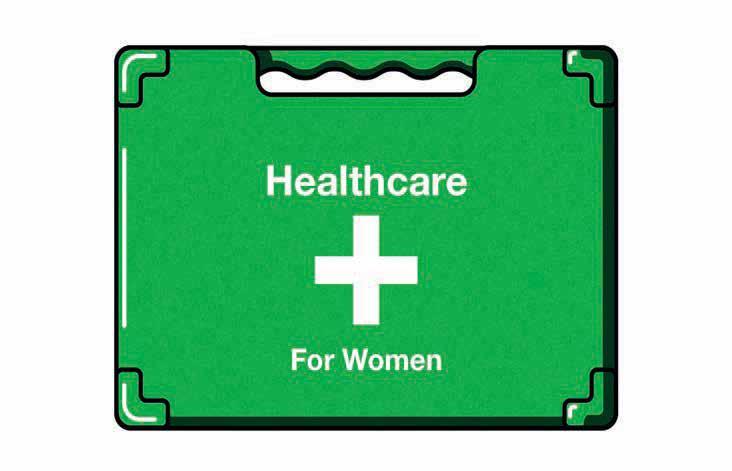
2 minute read
The Change: Prepare for the menopause
The Change
We go through many changes in life, both good and bad. The menopause, which is often referred to as ‘The Change’, has mixed reviews. Our Healthy Foundations team have put together some information to help you prepare for whatever kind of change the menopause might bring.
Advertisement
First, to understand the menopause it helps to know the internal reproductive organs of women, girls, and people assigned female at birth. If you’re not sure what we’re talking about, see the diagram (below).
So, what do these organs do? The ovaries produce a hormone called oestrogen, which controls the regular monthly cycle of changes within the reproductive organs.
As we get older, our ovaries gradually stop producing as much oestrogen; this change in the balance of hormones causes the menopause. Once you’ve experienced the menopause, you’ll stop having periods and your ovaries won’t release an egg each month, so you won’t be able to get pregnant naturally.
Most people start going through the menopause between 45 and 55 years of age – the average age in the UK is 51 years old. However, around 1 in every 100 women experience the menopause before they reach 40; this is called premature menopause or premature ovarian insufficiency and can be caused by surgery, cancer treatments, or an underlying heath condition, but in some cases the cause is unknown. Most people going through the menopause will experience symptoms. These symptoms usually begin months or even years before your periods stop, which is called the ‘perimenopause’ phase. On average, symptoms last for around four years after your last period, but some people can experience them for much longer – everyone’s experience of the menopause is different.
Here are some examples of the most common menopausal symptoms:
l Changes to your mood or mental health (including depression and/or anxiety) l Problems with memory and concentration l Headaches l Difficulty sleeping and/or fatigue
l Hot flushes – short, sudden feelings of heat, usually in the face, neck, and chest l Night sweats – hot flushes that happen at night
l Racing heartbeat – palpitations
l A change in the normal pattern of your periods, until eventually the periods stop altogether l Vaginal dryness and/or discomfort l Pain, itching, or discomfort during sex l Reduced sex drive (libido)

l Problems controlling your bladder (incontinence)
l Joint stiffness, aches, and pains
l Muscle stiffness and pain l Reduced muscle mass
If you suspect you are experiencing menopausal symptoms, see your GP or prison doctor. They’ll be able to offer lifestyle advice or potential treatments for any troubling symptoms. And if your symptoms aren’t improving after treatment, they’ll be able to refer you to a specialist.
But don’t forget, there’s lots you can do to help! Keeping active, getting plenty of sleep, eating a healthy diet, quitting smoking, and cutting down on alcohol can all help. But the most effective thing that you can do is to simply be kind to yourself. Remember, whatever changes the menopause may bring, you are still you.









